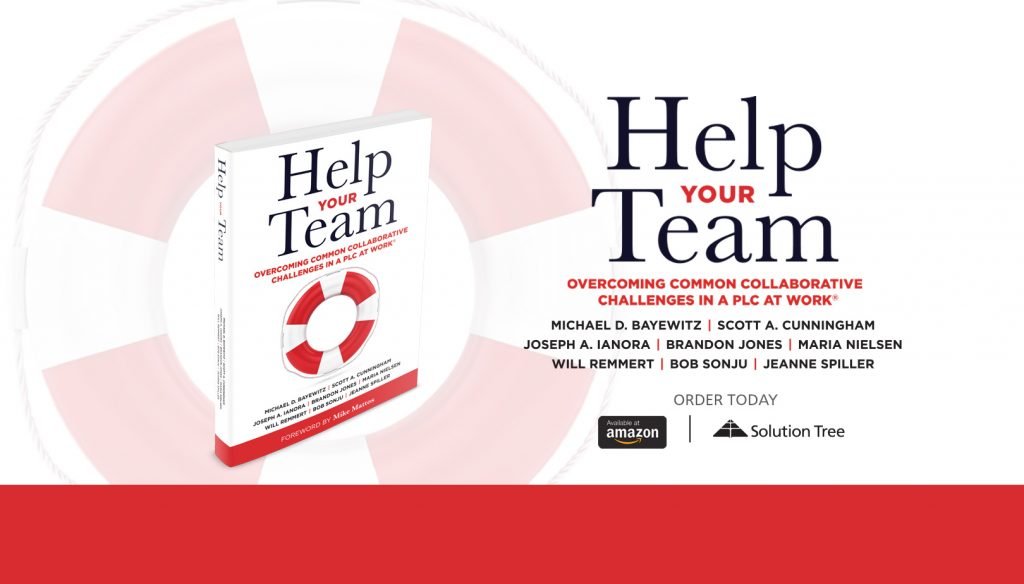Based on Help Your Team
In a letter written in 1789 to Jean-Baptiste Leroy, Benjamin Franklin said, “But in this world nothing can be said to be certain, except death and taxes.” Although still amazingly accurate today, we believe that we, as educators, can add a third certainty: In their efforts to ensure high levels of learning for all students, collaborative teams will struggle with certain predictable challenges.
These challenges include:
- Why should we function as a team when teaching in isolation seems so much easier?
- What should we do when team members disengage from collaborating with others?
- We have been given time to collaborate but don’t know what our focus should be.
- I’m the only person who teaches my subject. What do I do?
- How can our team align essential standards and common assessments to make interventions more effective?
These are just a few of the predictable questions that groups of educators may face as they grow into a truly collaborative team.
As practitioners in the field of education serving as teachers, team members, administrators, and consultants, we have had the opportunity to experience these challenges firsthand. We certainly understand the frustration that can develop as well-intentioned groups of teachers work to become highly effective, collaborative teams. It takes work, persistence, and often a little help from someone who has been there. Like the ancient Chinese proverb teaches, “To know the road ahead, ask those coming back.” We believe that the collective expertise of those who have “walked the road” will help you work through the setbacks and challenges that all teams experience. We know the road you are on. We can help!
In our latest book, Help Your Team, we have explored these predictable challenges teams face and offer simple, targeted templates, strategies, and solutions to help maintain that forward momentum that is so critical to your team’s success. Within each chapter, we will guide your team through:
- A vignette outlining a myriad of team challenges
- The research behind the strategies shared
- Templates, strategies, and solutions to help overcome the challenge
- Tips for coaching each strategy
- Additional resources to help the team move forward
An example of a tool you can find in our book includes the suggestions below for framing a conversation with a team member when a crucial conversation may be necessary.
Conversation with Team Member: Colleague to Colleague or Team Leader to Teammate
- Enter the conversation with the expectation that the other person is trying to do his or her very best for the kids he or she serves.
- Focus on the behavior or processes that are lacking, not the person.
- Tie each expectation back to the preestablished norms and/or commitments.
- Engage in collaboration about measurable improvements or adjustments in behavior.
- Resist the temptation to gloss over or sugarcoat the issue(s).
- Be collegial, empathetic, and address each issue that needs changing.
Whether you’re a team member, a learning coach, or an administrator, we are confident that the resources and collective expertise shared in Help Your Team will serve as a valuable resource as you work collectively to ensure every student you serve learns at high levels. Like Ben Franklin, of this we are certain!
[author_bio id=”47″]







